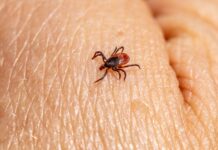Math helps us model artificial worlds to test the future impact of our choices. From our use of land and the impact on endangered species, to vaccination rates and the eradication of disease, these models give us a better understanding of how we are coupled to our environment.
Chris Bauch, professor of Applied Mathematics and a University Research Chair at the University of Waterloo, applies mathematics to solve real-world problems in health, sustainability, and human behaviour.
To look at these systems in a more realistic way, Bauch uses one single coupled human-environment system, rather than treating these as two separate systems because each influences the other. For instance, while unsustainable logging practices may jeopardize an endangered ecosystem, seeing the impact of these negative changes may create a sense of urgency to preserve our forests, resulting in personal or policy changes.
“If we only have one population, we simply can’t do experiments so we have to create artificial worlds in the computer using mathematics and computer simulations to try to figure out what would happen under different scenarios,” says Bauch.
Mathematics may also help make sense of the vast amount of information on human behaviour that comes from social media.
Bauch explains that studying these data “has been compared to the invention of the microscope several centuries ago which really opened up a world of microbiology. We now have enormous amounts of data that we can hopefully analyze to learn something about human behavioural patterns, and articulate how people respond to the environment. We need mathematics to help us interpret what is happening; to create a framework that explains it and helps us understand it better.”




































